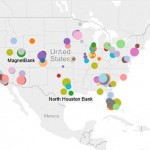The Ties That Bind
I do apologize for the super late post. This is an interesting topic and I wanted to respond regardless of whether it will count or not. As many others discussed, Facebook is the primary social media outlet that is posted on, so I will also analyze my activity on it because it seems most fitting for this blog post. Most of my networks on social media are connected. Friends are connected with friends of friends, and so on and so forth. The only instance I can think of where I am connected to a different group on social media that none of my other connections are linked with are interest groups. “Liked” pages on Facebook; groups of people who share a common interest weather it is Taylor Swift or golfing tend to not have any link to the other members (from my personal experience) other than the common interest. I think this affects the variety of posts in my feed because occasionally I will see posts from complete strangers, and we do not have any mutual friends at all. I often even receive notifications from strange individuals. They almost always turn out to be posts in a page that I follow that received a lot of likes or comments. Facebook must have an algorithm that determines when it’s applicable to display them. These probably make up less than 20% of my feed and notifications though.
I rarely am active on Facebook anymore and I don’t have a twitter so this question is a bit tricky. I mostly just passively consume data and information on social media, checking it occasionally to keep up with the times. The posts I am most drawn to are usually articles and videos that my friends “share”. My thought process is usually, “if my friends liked it, I’ll like it”. I am most strongly influenced by my friends on social media in regards to current events and politics. If a friend posts a status about their opinion on a public issue, I usually make a mental note of it. If many peers that I respect and admire consistently have a similar view, I am very likely to at least consider their alternative view of the issue.
Like I stated earlier, I rarely post. When I do though I can usually count a small handful of close individuals to at least comment or like it. The ones that are consistent with this are almost always friends or family that I am close with. I likely influence others through social media the same way I am influenced. By revealing personal opinions I have about people, places and things by posting about them or sharing media about them. I think I can also influence close friends posts or photos by positively or negatively reinforcing their decision to upload them.
Well drawing back to our class discussion, it is a lot of responsibility. It could be used for selfish corporate endeavors, or for good. One example used in class was individuals being more likely to vote if Facebook displayed posts that their friends voted. I think voting is a civic duty and this could be manipulated for a positive outcome. Using this same example it could always be skewed by displaying this information to certain demographics and potentially changing voting habits. This comparison is interchangeable for many different aspects of life that could be influenced by the display of data.

 Previous Post
Previous Post Next Post
Next Post
I should probably think more about how my friend’s opinions shared on Facebook affect the way I think about something in particular. I know I tend to do more research on something after a friend posts. I just haven’t really ever thought about it. Great post!